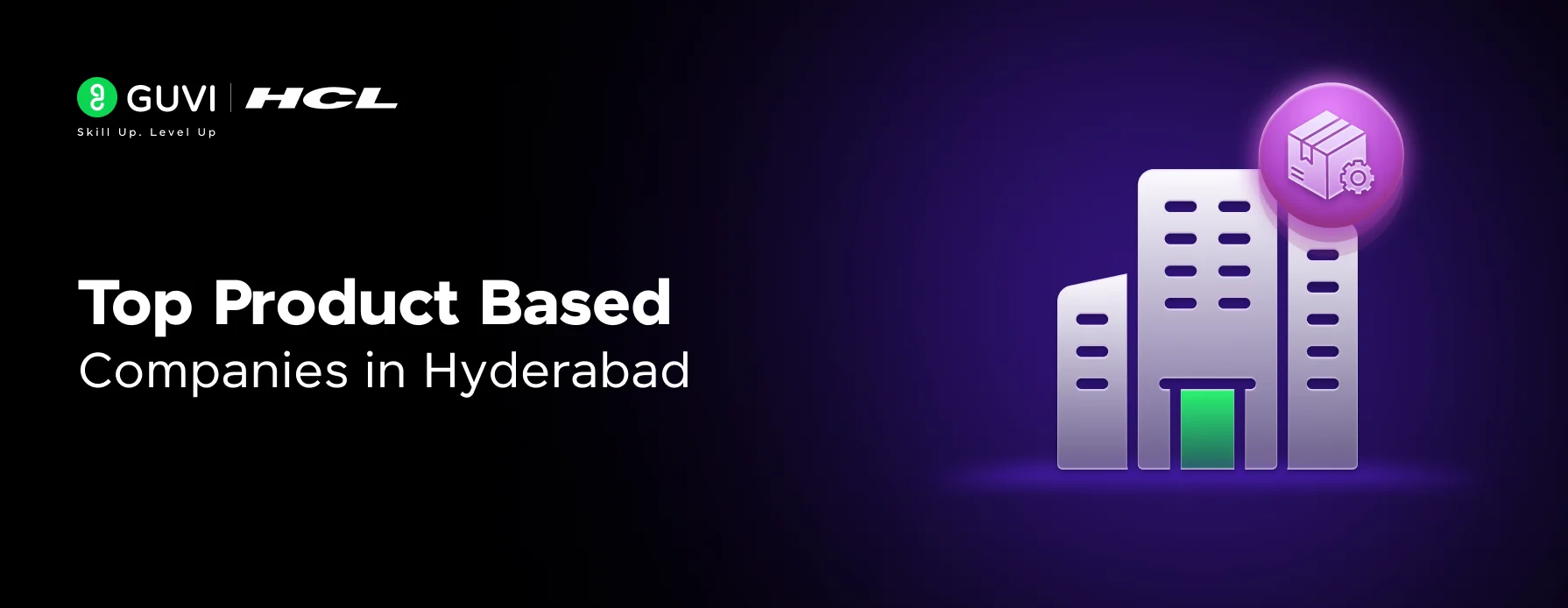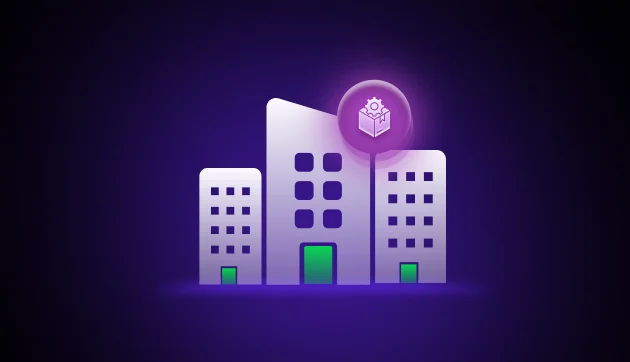
8 Popular Non-Coding IT Jobs: A Comprehensive Guide
Oct 10, 2025 6 Min Read 7268 Views
(Last Updated)
When you think of IT jobs, coding may be the first thing that comes to mind. However, the tech industry is much more than programming, and there’s a world of rewarding roles that don’t require you to write a single line of code.
If you’re a student exploring career options or a professional looking to switch paths, non-coding IT jobs offer diverse opportunities to leverage your strengths.
In this article, you will discover what these roles entail, why they’re important, and how they can be just as fulfilling as coding careers. So, without further ado, let us get started!
Table of contents
- Non-Coding Roles in IT: An Overview
- 8 Popular Non-Coding IT Job Roles
- Business Analyst (BA)
- UI/UX Designer
- IT Project Manager
- Data Analyst
- Technical Writer
- QA Tester (Quality Assurance Tester)
- Cybersecurity Analyst
- Product Manager
- Mid-Article Challenge: Which Tech Role Fits You Best?
- Job Opportunities for Non-Coding IT Roles and Next Steps
- Conclusion
- FAQs
- What are some IT jobs that don't require coding?
- Can I have a successful IT career without knowing how to code?
- Are there high-paying tech careers for non-programmers?
- What are some in-demand tech roles that don’t involve programming?
- What skills are essential for non-coding IT roles?
Non-Coding Roles in IT: An Overview

What are non-coding IT jobs? In simple terms, these are roles in the technology sector that do not primarily involve computer programming. Instead, they focus on other critical aspects of tech projects, such as analysis, design, management, quality assurance, writing, and security.
Examples include Business Analysts who bridge the gap between business needs and technology, UI/UX Designers who craft user-friendly interfaces, Project Managers who coordinate teams and timelines, and many more. Despite not coding, people in these roles work closely with developers and are essential to the success of IT projects.
In India, non-coding tech roles are also on the rise. A recent report highlighted that data analytics postings in India grew by 52% over five years, reflecting how businesses increasingly rely on data-driven insights. The bottom line: non-coding roles are not “backup” options – they are in-demand careers critical to the tech ecosystem, with plenty of room for advancement.
8 Popular Non-Coding IT Job Roles

Now, let’s explore some of the most popular non-coding IT job roles, what they involve, and what you need to succeed in them.
1. Business Analyst (BA)
As a Business Analyst, you act as a liaison between the business side and the tech team. BAs analyze an organization’s processes and requirements, and help design technology solutions that solve business problems.
This means gathering and documenting requirements, developing business cases, and recommending improvements or new systems. Business Analysts also evaluate ongoing operations and suggest strategies for cost savings or efficiency.
- Strong analytical and problem-solving skills – you need to break down complex business problems.
- Excellent communication and interpersonal abilities to work with stakeholders across departments.
- Good understanding of business processes and domain knowledge (e.g., finance, healthcare) relevant to the project,
Average salary:
| Experience Level | Average Salary |
| Entry Level | ₹4–6 LPA |
| Mid-Level | ₹7–10 LPA |
| Senior Level | ₹12–18 LPA |
In India, Business Analysts earn around ₹8–9 lakh per annum (LPA) on average. With experience and possibly an MBA or industry certifications, your earning potential grows further.
2. UI/UX Designer
UI/UX Designers are the creative minds that craft how software looks and feels. In this role, you might conduct user research, create wireframes and prototypes, and test designs with users to iterate toward the best experience.
In practice, your day could involve using design tools (like Figma or Adobe XD), sketching user flows, and collaborating with developers to implement your designs.
In case you want to read more about UI/UX designing from scratch and become well-equipped with the domain, consider reading HCL GUVI’s Fundamentals of UI/UX Ebook that covers the key concepts of UI/UX (like color theory, typography, and spacing) and the core principles of UI/UX along with UX design process.
Key skills:
- Creativity and design sense – an eye for layout, typography, and color.
- Empathy and research skills to understand user needs and pain points.
- Proficiency with design and prototyping tools (Sketch, Figma, Adobe Suite, etc.)
Average salary:
| Experience Level | Average Salary |
| Entry Level | ₹3–5 LPA |
| Mid-Level | ₹6–10 LPA |
| Senior Level | ₹12–20 LPA |
UI/UX is a well-paying field. In India, the average salary of a UI/UX Designer is around ₹6–8 LPA for professionals with a couple of years’ experience.
If you want to kickstart your UI/UX journey and learn everything there is to about UX design, consider enrolling in HCL GUVI’s UI/UX Design Course, where you will master the most trending design tools, focusing on industry expectations and directing you to Fortune 500 companies.
3. IT Project Manager
Project Managers in IT plan and execute technology projects, ensuring they are completed on time and within budget. As an IT Project Manager, you won’t write the code, but you’ll coordinate those who do, along with designers, testers, and other stakeholders.
Typical duties include defining project scope and goals, creating schedules, allocating resources, managing budgets, and handling communications among team members and clients. Essentially, you’re the organizer and leader who makes sure everyone is working in sync.
Learn More: How to Become a Project Manager? 7 Steps For Beginners
Key skills:
- Organization and planning – ability to create schedules and manage many moving parts.
- Leadership and team management – motivating team members, delegating tasks, and resolving conflicts.
- Knowledge of project management methodologies (Agile/Scrum, Waterfall, etc.) and tools (JIRA, Trello, MS Project).
Average salary:
| Experience Level | Average Salary |
| Entry Level | ₹6–8 LPA |
| Mid-Level | ₹10–15 LPA |
| Senior Level | ₹18–25 LPA |
Project management is well-compensated. In India, an IT Project Manager earns about ₹12 LPA on average (with variation based on experience and industry).
4. Data Analyst
Do you love working with data and uncovering insights? Data Analysts spend their time collecting, cleaning, and analyzing data to help organizations make better decisions.
In this role, you might crunch numbers to find trends (e.g., user behavior, sales patterns), create dashboards and reports, and present findings to stakeholders.
A Data Analyst often uses tools like Excel, SQL databases, or BI software (Tableau, Power BI) rather than programming (though sometimes light scripting in Python/R is used, it’s more about analysis than building software).
Key skills:
- Statistical and analytical skills – comfortable with numbers, averages, trends, and basic statistical methods.
- Proficiency in data tools: Excel (pivot tables), SQL for querying databases, and possibly languages like Python/R for advanced analysis.
- Data visualization skills to create charts and dashboards (using Tableau, Power BI, etc.) that communicate insights.
Average salary:
| Experience Level | Average Salary |
| Entry Level | ₹4–6 LPA |
| Mid-Level | ₹7–10 LPA |
| Senior Level | ₹12–18 LPA |
Data Analysts are well-paid relative to many entry roles. In India, the average base salary for a Data Analyst is around ₹6.3 LPA.
Understand Better: Business Analytics vs Data Analytics: Which is More Important
5. Technical Writer
Not everyone in tech writes code; some write about code and technology. Technical Writers create documentation that makes complex tech concepts understandable.
This can include user manuals, how-to guides, API documentation for developers, FAQs, whitepapers, and internal process documents. In an IT company, as a Technical Writer, you might translate what engineers built into guides that end-users or other developers can follow.
Key skills:
- Excellent writing and grammar skills – clarity, brevity, and accuracy are your mantras.
- Ability to understand technical concepts quickly by talking to engineers or reading technical specs.
- Organization and structuring skills to present information logically (for example, structuring a manual with steps, warnings, FAQs).
Average salary:
| Experience Level | Average Salary |
| Entry Level | ₹4–5 LPA |
| Mid-Level | ₹6–8 LPA |
| Senior Level | ₹10–15 LPA |
Technical Writing can be quite rewarding financially. In India, an entry-level Technical Writer makes around ₹4–6 LPA on average.
6. QA Tester (Quality Assurance Tester)
QA Testers are the quality gatekeepers of the tech world. They test software and IT systems thoroughly to find bugs or issues before products go live. In this role, your mission is to break things (in a good way) – meaning you’ll run the software through various scenarios to ensure it works as intended and is user-ready.
QA roles can range from manual testing (clicking through an app, following test cases, writing bug reports) to automated testing (writing scripts that programmatically test features, though basic scripting might be required for automation).
Key skills:
- Attention to detail – spotting inconsistencies or unexpected behaviors that others might miss.
- Analytical thinking – being able to troubleshoot and pinpoint the steps to reproduce a bug.
- Knowledge of software testing methodologies (unit testing, integration testing, regression testing, etc.).
Average salary:
| Experience Level | Average Salary |
| Entry Level | ₹3–5 LPA |
| Mid-Level | ₹6–9 LPA |
| Senior Level | ₹10–15 LPA |
Quality Assurance roles provide solid pay, though they often start a bit lower than some other tech roles. In India, a QA Tester might start around ₹3–5 LPA at the junior level.
7. Cybersecurity Analyst
A Cybersecurity Analyst (also known as an Information Security Analyst) is essentially an IT security guardian. In this role, you work to protect an organization’s computer systems, networks, and data from breaches and cyberattacks.
Day-to-day, you might monitor security alerts, investigate suspicious activities, conduct vulnerability assessments, and enforce security policies.
Key skills:
- Understanding of security principles – encryption, network security, threat modeling, etc.
- Familiarity with security tools (e.g., SIEM systems like Splunk, antivirus software, intrusion detection systems).
- Analytical and problem-solving mindset – able to investigate incidents and identify causes.
Average salary:
| Experience Level | Average Salary |
| Entry Level | ₹4–6 LPA |
| Mid-Level | ₹8–12 LPA |
| Senior Level | ₹15–20 LPA |
8. Product Manager
Product Managers are often called the “CEO of the product” – they lead the strategy, roadmap, and features of a product from conception to launch (and beyond).
This is a cross-functional leadership role: you won’t be coding, but you’ll interface with nearly every team (engineering, design, marketing, sales, etc.) to ensure the product’s success. A Product Manager (PM) defines what the product should do by gathering customer requirements, studying market trends, and aligning with business goals.
Key skills:
- Strategic thinking – ability to craft a vision for the product and plan steps to get there.
- Communication and leadership – you must inspire and coordinate teams without direct authority (PMs often rely on influence).
- User empathy and research – understanding customer needs through surveys, interviews, data analysis.
Average salary:
| Experience Level | Average Salary |
| Entry Level | ₹8–12 LPA |
| Mid-Level | ₹15–20 LPA |
| Senior Level | ₹25–35 LPA |
Product Management is one of the higher-paying non-coding roles, reflecting its importance. In India, Product Managers earn around ₹15 LPA on average.
Mid-Article Challenge: Which Tech Role Fits You Best?
Reading about all these roles, you might be wondering which one is right for you. Let’s pause and do a quick interactive thought experiment. Below are some statements – see which ones resonate with you, and check the suggested role(s) that align with those interests:
- “I love organizing projects and ensuring everything runs on schedule.” – You might thrive as a Project Manager or Product Manager, where planning and coordination are key.
- “I have a knack for understanding business needs and finding solutions.” – Consider Business Analyst or even Product Manager, roles that bridge business and tech.
- “Designing beautiful, user-friendly experiences sounds exciting to me.” – UI/UX Designer could be your calling, crafting interfaces and user journeys.
- “I enjoy writing and explaining how to use something step by step.” – Look into Technical Writer positions, where you’ll create guides and documentation.
- “I’m fascinated by data – finding patterns and insights in numbers.” – Data Analyst is a strong match, diving into datasets to inform decisions.
- “I pay attention to details and like breaking things to see how to fix them.” – You’d make a great QA Tester, ensuring products are error-free.
- “Protecting systems from hackers and understanding security intrigues me.” – A Cybersecurity Analyst could be a perfect fit to indulge your security instincts.
Think of this as a mini-quiz. It’s not definitive, but it should spark ideas about where your passion lies. Use your gut feelings from this exercise to guide which roles to explore more deeply.
Job Opportunities for Non-Coding IT Roles and Next Steps

Non-coding IT roles aren’t theoretical – companies around the world are actively hiring these professionals. To make this concrete, here are a few real-world examples:
- Tech Giants: Companies like Google, Amazon, and Microsoft have entire teams for these roles. Google, for instance, has a dedicated Design career track for UX specialists, and Amazon’s job portal shows hundreds of openings in Product Management.
- Indian IT Firms: Top Indian companies such as TCS, Infosys, and Wipro regularly recruit Business Analysts, Project Managers, QA testers, etc., especially to manage large client projects. TCS even highlights roles like business analyst and QA tester as key positions in its Salesforce services division.
- Startups and Unicorns: Fast-growing startups (e.g., in fintech, e-commerce) often hire Product Managers and UX Designers early on to refine their offerings and ensure a good market fit.
- Other industries: It’s not just tech companies. Banks hire Data Analysts to crunch numbers for risk and marketing. Hospitals and healthcare firms employ IT Project Managers to implement new software systems.
If you’re inspired to pursue one of these paths, here are a few next steps to consider:
- Research the role in more detail,
- Look up entry-level job listings to see requirements, and perhaps seek out online courses or certifications. For instance, if Business Analyst piqued your interest, you might explore certification from IIBA or an MBA/business analytics course; if UX sounds great, building a design portfolio and taking a UX design course could be helpful.
- Networking with professionals in the field (via LinkedIn or your college alumni) can also provide insight and possibly mentorship.
Conclusion
In conclusion, stepping into the IT industry does not require you to become a software developer. As we’ve explored, numerous non-coding IT jobs are equally dynamic, critical, and rewarding.
From ensuring a product meets business goals to designing interfaces that delight users, these roles form the backbone of successful tech projects. And they’re anything but “backup” careers – many of them are experiencing faster growth than coding jobs and offer robust salaries and career progression.
Remember, the tech industry thrives on collaboration between coders and non-coders. Good luck carving out your path in the tech world – there’s a place in it for everyone, including you!
FAQs
1. What are some IT jobs that don’t require coding?
Numerous IT roles don’t necessitate programming skills. Positions such as project manager, product manager, technical writer, UX/UI designer, data analyst, cybersecurity analyst, IT consultant, network administrator, and tech sales representative focus on areas like design, analysis, management, and support rather than coding.
2. Can I have a successful IT career without knowing how to code?
Absolutely! The IT industry offers a wide range of roles that don’t involve coding. Many professionals thrive in positions like project management, technical writing, system administration, and cybersecurity, which are in high demand and offer rewarding career paths.
3. Are there high-paying tech careers for non-programmers?
Yes, several high-paying tech careers don’t require programming. Roles such as project manager, product manager, cybersecurity analyst, data scientist, cloud architect, and IT consultant often come with attractive salaries and focus on expertise in specific areas of technology rather than coding proficiency.
4. What are some in-demand tech roles that don’t involve programming?
In-demand tech roles that don’t require programming skills include cybersecurity analyst, AI operator, data analyst, UX/UI designer, cloud architect, IT consultant, system administrator, network administrator, technical writer, and business analyst.
5. What skills are essential for non-coding IT roles?
Non-coding IT roles often demand strong communication skills, problem-solving abilities, analytical thinking, business acumen, and adaptability. These skills are crucial for roles in project management, business analysis, IT support, UX/UI design, and digital marketing.




































Did you enjoy this article?